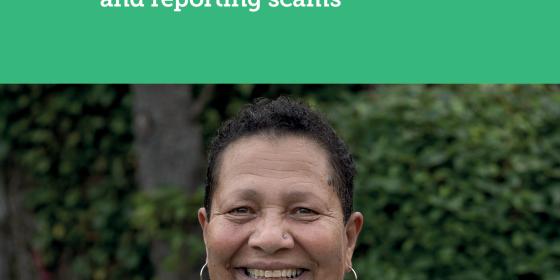
Financial challenges faced by older people come in many shapes and sizes, but one topic of increasing concern is the extent to which scammers and fraudsters are targeting senior citizens. In 2017/18 there were nearly 50,000 reported frauds affecting people aged over 60, up 21% on the previous year and equivalent to six crimes every hour of every day. Academic experts estimate that only 5% of such crimes are ever reported to the police and the true number of older victims could be over one million a year.
Why scammers target older people
Fraudsters target senior citizens for a number of reasons including:
- The likely availability of savings or pension pot
- Senior citizens are less likely to be internet savvy and less security conscious when using the computer
- Some older people are more trusting or more easily confused, particularly if the fraudster is pretending to be from a public service or bank
- Older people are more likely to be at home and to use a landline
- Senior citizens are less likely to report successful frauds because of shame or self-blame
- Senior citizens are less likely to present a physical threat for fake couriers or tradespeople and can be more easily bullied
Once successfully tricked, older people are put on so-called ‘suckers’ lists which are then sold on to scammers around the world.
Scams can be crude or clever
Many of us will have ignored crude scams such as: pretend lottery wins where you have to pay a fee to access the ‘winnings’, fake emails from a bank (often not your own bank) saying your security settings have been compromised, blackmail emails or calls alleging you have been traced viewing a porn site or that your computer has been infected with a virus; but scammers are developing much more sophisticated ways to fleece people.
A very popular scam is clever cloning of genuine websites so that you think you are buying a real branded article.
Beware when prices are unrealistically low and always pay particular attention to the checkout page, which may have clues on it that show that payment is not going to the expected destination.
My local paper recently reported a woman in her sixties had lost her life’s savings by contacting a cloned website purporting to be that of a genuine Swiss investment company. Her contact was then followed up by calls from fake representatives who inveigled her to part with her six-figure savings.
One of our members also reported a scam through Facebook where a fraudster impersonates one of your friends, using a photo cloned off your friend’s site, asking you to befriend them. Once you have done so, the scammers send you a message such as needing an urgent loan, and because you think it is from your trusted friend, you are suckered.
‘Legal’ scams are also a concern
All these are illegal frauds, but senior citizens also need to aware of ‘legal’ scams, particularly used in the retail world. The big supermarkets, for example, are adept at exploiting the short eyesight and ease with which they can confuse some elderly people. You often need a magnifying glass to realise the large coffee jar you are buying, supposedly on special offer, is actually much more expensive than buying two half -sized jars of the same coffee on an adjacent shelf. To spread confusion over prices is a strategic approach by supermarkets, as is the continual location changes of goods. Such sharp practice should be outlawed, as it amounts to age and disability discrimination.
The impact of scamming
When you have been successfully scammed, it is not just the loss of unreplaceable savings that is involved. There will be feelings of shame and embarrassment too.
And where an individual has been the subject of repeat scamming, there can be long-lasting implications for mental and physical health.
Targeting vulnerable older people through scamming is an abominable crime, which should receive much greater priority from our police and legal authorities. If I get a call from a suspected scammer, I always confront them with the morality of what they are trying to do. Maybe at least one of them will have a conscience!
Dennis Reed, Director of Silver Voices
Have you been affected by any of these issues?
If you have been affected by any of the issues described in this blog, or simply need someone to reach out to, you can call Independent Age’s freephone Helpline for information and advice on 0800 319 6789.
The views and opinions expressed in this article are those of the author and do not necessarily reflect the policy or position of Independent Age. |

